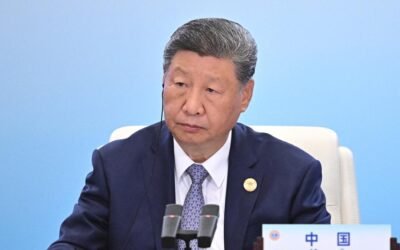The recent ruling by the Permanent Court of Arbitration (PCA) on the Indus Waters Treaty (IWT) marks a significant legal and diplomatic defeat for India, with far-reaching implications for its hydroelectric infrastructure projects. The decision unequivocally rejects India’s unilateral interpretation of the treaty and reinforces the legal and technical specifics that govern the design of dams on the western rivers. This verdict not only vindicates Pakistan’s long-standing position but also sets a clear precedent that discourages India’s past behavior of unilaterally suspending the IWT, an act which could have led to a violent escalation of tensions in the region. The ruling affirms that international legal mechanisms remain a robust and functional alternative to unilateral coercion, even between two nuclear-armed states with a history of conflict.
The Technical Blow: Redefining Infrastructure Design
The core of India’s defeat lies in the PCA’s detailed technical clarifications, which directly challenge the design of its planned and existing run-of-river hydroelectric projects. For years, Pakistan has argued that India’s designs, particularly on projects like the Kishenganga and Ratle hydroelectric plants, violated the treaty by allowing India to control water flow. The PCA ruling validates this claim by specifying precise design parameters that must be adhered to. This is more than a simple legal pronouncement; it is a profound technical intervention that will necessitate a costly and time-consuming overhaul of India’s infrastructure strategy on the western rivers.
You May Like To Read: Hamas Delegation in Cairo for Crucial Talks on Ending Gaza War
The court’s findings on key infrastructure components are particularly damning for India’s “best practices” approach, which it had unilaterally adopted in an attempt to circumvent the treaty’s explicit provisions. The ruling provides a comprehensive and binding framework for the design of future projects, making it impossible for India to hide behind vague engineering standards.
- Low-Level Outlets: The PCA ruled that India cannot have low-level outlets in its dams unless they are strictly necessary for dam safety, effectively preventing it from being able to drain water from a reservoir at will. This finding is a direct rebuttal to India’s design for the Kishenganga dam, which Pakistan had long argued was intended to give India the ability to manipulate river flow, thereby impacting Pakistan’s agriculture.
- Gated Spillways: The court clarified that gated spillways must be designed to a specific minimum height to ensure that water flows unimpeded downstream. This ruling directly counters India’s attempts to use these gates to exert control over the river’s flow and store water beyond the treaty’s limitations. The PCA’s specific instructions ensure that water discharge is based on natural river flow, not India’s discretion.
- Pondage and Freeboard: The PCA set a specific limit on the amount of water that can be stored (“pondage”) for hydroelectric generation, mandating it must not exceed twice the water accumulated over a minimum seven-day flow. Furthermore, it strictly limited the “freeboard” (the dam height above the maximum water level) to what is essential for dam safety. This ruling on pondage is a major win for Pakistan, as it prevents India from maximizing water storage to generate power at specific times, which could disrupt the flow to downstream Pakistan.
These rulings provide a clear and unambiguous framework, stripping India of its ability to use its own interpretations to justify project designs that could potentially impede water flow. The Award on Issues of General Interpretation of the IWT is now a legally binding document that will force India to re-engineer existing projects and submit future plans to stricter scrutiny. This will not only result in significant financial costs but also delay future projects, a major economic and strategic setback for New Delhi.
The Diplomatic and Legislative Defeat: Rejection of Unilateralism
Beyond the technical specifics, the PCA’s ruling represents a severe diplomatic setback for India’s policy of using the IWT as a tool for leverage. By reasserting its jurisdiction and competence to issue a binding award despite India’s boycott of the proceedings, the court delivered a powerful message: international treaties cannot be unilaterally suspended.
🔊PR NO.2️⃣3️⃣7️⃣/2️⃣0️⃣2️⃣5️⃣
Pakistan Welcomes the Award Rendered by the Court of Arbitration on the Issues of General Interpretation of the Indus Waters Treaty (IWT).
🔗⬇️https://t.co/fzmDYpXbYj pic.twitter.com/fNkbnDwyrv
— Ministry of Foreign Affairs – Pakistan (@ForeignOfficePk) August 11, 2025
India’s unprecedented move to declare the treaty in “abeyance” following a security incident was a clear act of diplomatic coercion. The PCA’s decision directly confronts this behavior, reinforcing the principle that a party to a treaty cannot simply abandon its obligations or the legal mechanisms designed to enforce them. This action serves as a crucial precedent for the entire international community, demonstrating that a nation cannot simply withdraw from its treaty obligations due to political or security grievances.
The ruling affirms Pakistan’s position as a downstream riparian state with legitimate water rights that must be protected, even in the face of strained bilateral relations. Pakistan’s Foreign Office was quick to hail the award as a vindication of its long-standing position, reinforcing the country’s strategic and moral triumph. This sends a powerful signal to the international community that such disputes must be resolved through established legal channels, not through unilateral political acts or aggression. The PCA’s award stands as a testament to the power of international law and a definitive rejection of India’s attempts to weaponize water and undermine the stability of the IWT.
The decision is also a sharp rebuke of any notion that India can use its regional power to intimidate its neighbor. By seeking recourse through international law, Pakistan has demonstrated that diplomatic and legal tools can be effective in challenging the hegemonic aspirations of a larger state. This outcome has a chilling effect on India’s ability to use the IWT for political ends and discourages future acts of violence or unilateral aggression. The international community, and particularly the World Bank, will now be watching to ensure that the spirit of the Indus Waters Treaty is upheld.
PM Shehbaz Sharif on Tuesday issued a stern warning to India over water rights amid ongoing disputes surrounding the IWT, declaring that any attempt to disrupt Pakistan’s water supply would be met with a resolute response.https://t.co/VIS0V3SPxg#brecordernews pic.twitter.com/B07y61TLAm
— Business Recorder (@brecordernews) August 13, 2025
The PCA’s ruling marks a significant inflection point in the decades-long Indus Waters Treaty dispute. It offers undeniable clarity on Pakistan’s water rights, firmly re-establishing the treaty’s legal foundations and setting a binding precedent against the unilateral suspension of such agreements. This verdict is a definitive technical and diplomatic defeat for India, carrying significant economic repercussions for its hydroelectric projects and a blow to its international credibility. For Pakistan, the outcome is a profound strategic and moral victory, endorsed by the authority of international law.
You May Like To Read: A New Era of Strategic Coalitions and the Decline of Traditional Pacts
The long-term impact of this landmark decision, however, hinges on India’s response. While the international community, including the World Bank, will be watching closely, Pakistan has made it clear that any further resistance to the award will be met with a firm and decisive stance. Pakistani leaders have issued a strong warning that continued non-compliance or aggressive actions by India could lead to a severe escalation of conflicts between the two nations.
In a powerful declaration, Field Marshal Syed Asim Munir stated that Pakistan would not hesitate to destroy Indian dams built in defiance of the IWT, emphasizing that the Indus River is not the Indians’ family property. This unequivocal message underscores Pakistan’s resolve to protect its water resources at all costs, signaling that the future of water-sharing in the region is at a critical juncture where adherence to international law and mutual respect are non-negotiable.




























